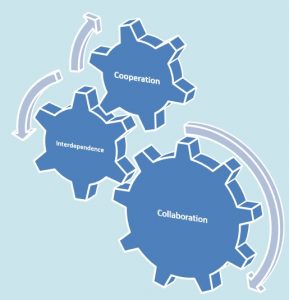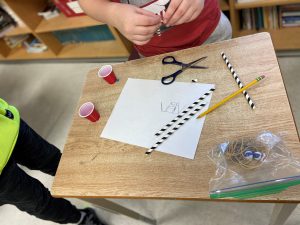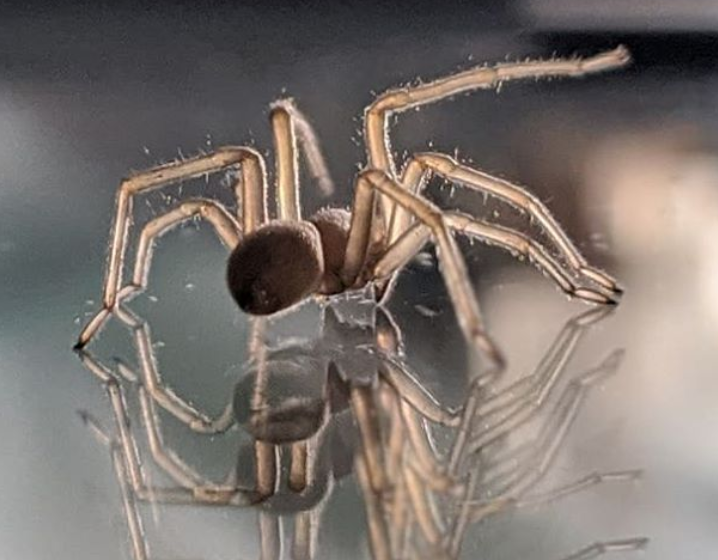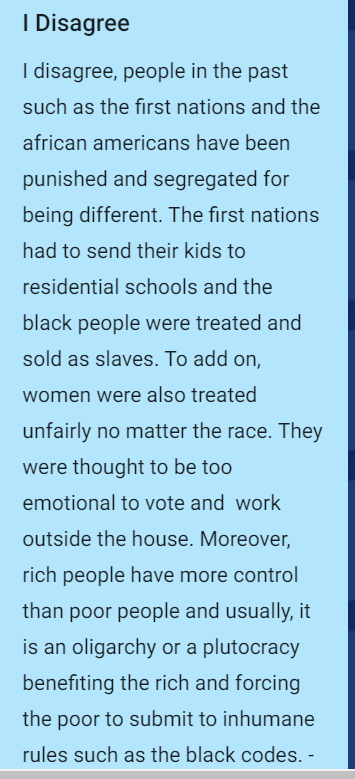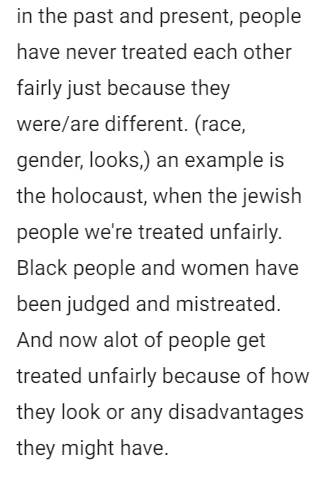ETFO’s position on in-person learning remains unchanged. The union firmly believes that the daily, in-person model of instruction and support best meets the educational, developmental and social needs of students, provides the best experience for support, and is the most equitable learning model for all students. ETFO’s expectation is that elementary virtual learning in any capacity, including through hybrid models of instruction, will end once the pandemic ends.
Internationally, professional educational bodies and teacher federations in the United States, Britain, and Canada, for example, advocate for learning communities and the teacher collaboration that supports it (American Federation of Teachers, 2011; Elementary Teachers Federation of Ontario, 2011; General Teaching Council for England, 2003; National Board for Professional Teaching Standards, 2004; Ontario College of Teachers, 2006).
In Ontario, the Ontario College of Teachers’ Professional Learning Framework specifies that “Learning communities enhance professional learning. The professional learning framework encourages collaboration. It supports ongoing commitment to the improvement and currency of teaching practice as an individual and collective responsibility” (Ontario College of Teachers, 2015, p. 23).
Further, the Elementary Teachers Federation of Ontario defines learning communities as “A group of education professionals who share common visions, values, and goals, and work collaboratively using inquiry, experimentation, and innovation to improve teaching and student learning” (2015, n.p.). The federation supports teachers’ involvement in learning communities when teachers’ participation is voluntary, is based on collegiality, respects members professionalism and autonomy, is supported with funding, and contributes to teachers’ professional growth (Weston, 2015).
The push for promoting teacher collaboration has gone from teachers simply meeting as a group to the hierarchical restructuring of schools in which learning community organization has become embedded in the educational landscape (Gajda & Koliba, 2008). It is important to note that when collaboration is forced on teachers through administrative bodies, it can morph into managed or “contrived collegiality” (Hargreaves & Fullan, 2012, p. 119). An example of this would be when administrators control teacher interactions through managerial meeting agendas, lists of working groups, and data teams (Hargreaves & Fullan, 2012). Ideally, through a nonjudgmental collegial lens, collaboration should be focused on the developing, planning, and assessing of teaching practices to meet students’ needs (Lortie, 1975/2002).
Available research suggests that teacher identity norms impact teacher collaboration (Hargreaves, 2010). However, no large-scale quantitative data have been collected to investigate the relationships among teacher identity norms and teacher collaboration. In other words, there is no research that captures how teachers’ identities are implicated in the move towards a professional collaborative culture. “The research is clear on the importance of teacher collaboration in building collaborative communities (Achinstein, 2002; Gajda & Koliba, 2008; Hargreaves, 1991). What is not known is the connection between the way teachers work, the way they collaborate, their identities as teachers, and their identities as colleagues” (Weston, 2015).
In 2015, my research brought some light to what promotes and what suppresses teacher collaboration. Using quantitative research methods, my research found that the data indicated two clusters of teacher identity norms. The norm cluster of innovation, interdependence, and cooperation showed positive correlations with collaboration and the norm cluster of conservatism, individualism, and competition showed negative correlations with collaboration. The data showed that teachers highly valued collaboration as part of their teaching practice but did not always experience it in their school setting. “The analysis suggested that if schools reinforce norms of innovation, interdependence, and cooperation, collaboration will be nurtured. Further, the data showed that if norms of conservatism, individualism, and competition are continued in school cultures, then collaboration will not be sustained. As a broad educational reform agenda, teacher collaboration is used (a) to support school cultures, (b) to change teaching practices, and (c) to implement policy-based initiatives (Weston, 2015).
On a personal note, it is through my collaboration with my colleagues that I grow most in my teaching practice. Currently, I have the opportunity to work with two colleagues who also teach my classroom program. This means that they have a similar base of knowledge in teaching the Empower program in our Contained Communications classrooms. As this teaching role can be very challenging, I often rely on my colleagues experience to deal with academic, social, and emotional challenges I face with students’ success. It is also important to note that we also share students so we can compare our similar challenges with a particular student. Some days I just need my colleagues to listen to me, while on other days I need advice and suggestions for changes in practice. I provide the same opportunity for my colleagues to talk to me about their challenges or just listen. Some days we commiserate together (tissue is sometimes required).
As my research suggests, our interdependence in supporting each other builds our collaboration. Further, with regular cooperative support, we become more effective as teachers and less stressed as we can reduce our apprehension about the challenges we face with our students. In providing supplementary suggestions and resources allow each of us to become more innovative in developing new strategies that work to increase our students capacity to read and write.
Within our group’s culture, it is because of this opportunity to collaborate with my colleagues that I have developed further in my effectiveness in teaching students with significant learning disabilities. In our collaboration, we build our students’ ability to become literate lifelong learners.
How does building online collaboration differ?
As of December 2020, it’s been almost a year since I’ve started teaching synchronously online (and face to face). I’ve been reflecting on how student and teacher collaboration differs. As I reflect on my experiences with online learning, I realized the core foundations of collaboration are not much different … it’s just the forum that’s changed. Of course, participants must deal with technical issues and and learn about synchronous Online Etiquette (i.e. when to “raise” your virtual hand, who get to speak next etc.) In an online setting, participants are still people building relationships with each other. As each online group is a unique as its participants, their online culture will also be formed based on its member’s needs and interests. As an on line teacher and instructor, I realize that it is even more important to reach out to colleagues for support as the process of collaborating via a screen can be very isolating.
I don’t have all the answers yet and I continue to learn more each day. I welcome any tips or feedback as I will learn from this too.
As always,
Collaboratively Yours,
Deb Weston, PhD
References
Achinstein, B. (2002) Conflict amid community: The micropolitics of teacher collaboration, Teachers College Record, 104(3), 421-455.
American Federation of Teachers. (2011). Teacher development and evaluation. Retrieved from http://www.aft.org/issues/teaching/evaluation.cfm
Elementary Teachers Federation of Ontario. (ETFO). (2015). Professional Learning Communities, Retrieved from http://www.etfo.ca/SupportingMembers/Employees/PRSMattersBulletin/Pages/Professional%20Learning%20Communities.aspx
General Teaching Council for England. (2003). The teachers’ professional learning framework. Retrieved from http://www.gtce.org.uk/documents/publicationpdfs/tplf_commit_ptplf0603.pdf
Hargreaves, A. (1991). Contrived collegiality: The micropolitics of teacher collaboration, In J. Blase (Ed.), The politics of life in schools: Power, conflict, and cooperation. (pp. 80-94). London, UK: Sage.
Hargreaves, A. (2010). Presentism, individualism and conservatism: The legacy of Dan Lortie’s schoolteacher. Curriculum Inquiry, 40(1), 143-154.
Lortie, D. C. (2002). School teacher: A sociological study (2nd ed.). Chicago, IL: University of Chicago Press. (Original work published 1975).
National Board for Professional Teaching Standards. (2004). What teachers should know and be able to do: The five core propositions. Retrieved from http://www.nbpts.org/UserFiles/File/what_teachers.pdf
Ontario College of Teachers. (2006). Standards of practice. Toronto: ON: Author.
Ontario College of Teachers. (2015). Professional learning framework for the teaching profession, Standards of practice. Toronto: ON: Author. Retrieved from https://www.oct.ca/public/professional-standards/standards-of-practice
Weston, D. (2015). Investigating the Relationships Between Teacher Identity Norms and Collaboration. Retrieved from https://dr.library.brocku.ca/bitstream/handle/10464/6191/Brock_Weston_%20Deborah_2015.pdf?sequence=2&isAllowed=y

